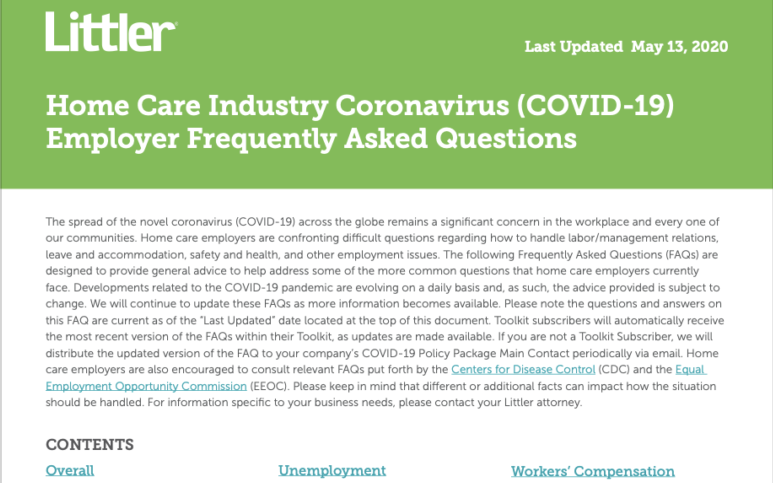
Jul 14, 2020 | BillFlash, NexTrust, Partner
The SIX KEYS to sustaining your practice through the COVID-19 pandemic are online payments, Telehealth, automation tools, cyber protection, financial aid, and a good patient experience.
When Coronavirus first started to impact medical practices across the country, providers quickly put temporary solutions in place to ensure they were still able to see patients safely. As the pandemic endured, some of these “temporary” solutions became a “normal” part of doing business. While we can’t predict exactly how COVID-19 will affect us in the future, one thing is becoming clearer every day: Some of the changes that have been made in the past few months will shape how healthcare is managed after the global health crisis is over.
So, it’s time to start thinking long-term with your COVID-19 strategy. Here are six ‘keys’ for sustaining your practice right now that will continue to be important after the pandemic is over.
1. ONLINE PAYMENTS
Most businesses already process a good amount of their payments online (including EZClaim), but healthcare has been slow to adapt in this area. Practices no longer have the luxury of taking their time adopting digital payment options. It’s time to give patients what they’ve been wanting for years: the ability to pay their bills online.
Because the pandemic is still with us, contactless payments have surged. No-touch payments are an easy way to reduce the spread of germs, and most people already have the tools they need to complete these types of payments: phones, computers, and credit cards.
Online payments are encouraged even when you’re meeting patients in the office. EZClaim customers can easily facilitate this with LinkPay. The process is easy and can be done once an appointment is made.
Here’s LinkPay in three simple steps:
1) Create a customized payment link with the required amount
2) Email or text the link to the patient before their visit
3) Patient pays the required amount, which is immediately confirmed and processed
COVID-19 demanded contactless payments for safety, but now patients now expect them for convenience. Medical practices will need online payments if they are to stay relevant in the future.
2. TELEHEALTH
Telehealth threw providers a lifeline when patients stopped coming into the office. The government acted quickly to relax Telehealth reimbursement policies so providers would be paid just as much for a Telehealth visit as they would for an in-office visit.
Congress is hoping to make these changes permanent. Whether they succeed or not, plan on keeping Telehealth as an option for your patients. Because Telehealth is not just useful during a pandemic, it’s great during normal life, too. Not all visits require an in-person encounter, and patients of all ages can benefit from the convenience of not having to physically leave their homes to get the medical care they need.
Patients have become used to having Telehealth as an option. Keeping it as an option going forward will set you apart from other practices.
3. AUTOMATION TOOLS
Chances are you are working with fewer people than normal. So, with fewer people to handle your billing and payments, your best option is to automate whatever you can.
This could mean setting up AutoPay for patients you see regularly, so they don’t have to manually pay their bill every time. It could also mean setting up a payment plan, in which a fixed amount will be paid automatically every month until the balance is paid off. It could also mean outsourcing your collections.
Automation doesn’t mean you lose control. Rather, it gives your staff more time to manage other essential operations. EZClaim customers have all of these automation options available to them through BillFlash.
4. CYBER PROTECTION
With digital tools becoming more prevalent, it is more important than ever to make sure your systems are protected. Hackers are out in full force right now, so it is imperative that you have proper malware and anti-virus software in place to protect your practice, your patients, and your employees. Do your homework on the tech companies you work with, too. Protecting your practice and your patients should be a top priority!
Of course, your staff will need to be up-to-date on HIPAA protocols, as well. Make sure you are doing everything you need to protect patient privacy online as well as offline.
5. FINANCIAL AID
Some practices are struggling financially and may need government aid to get them through the current crisis. Keep an eye on government funds that are available and stay informed on their different requirements.
If you haven’t already, consider applying for a line of credit. This is a standard operating procedure—even during normal times—and can help protect you from further financial disruptions in the future. No one knows how long this pandemic will last, so having a line of credit to fall back on during the coming months and years could be a game-changer for your practice.
6. A GOOD PATIENT EXPERIENCE
Above all, you need happy patients. That is true whether we are in a recession or not. Happy patients are more likely to pay their bills, more likely to return for future care, and more likely to recommend you to family and friends.
So, as you make some of the changes you made during the pandemic permanent, make sure you are still doing the little things to ensure a positive patient experience. These include:
• Keep wait times short
• Maintain eye contact during visits to assure patients that you care
• Be transparent about payment expectations and insurance, as well as what you’re doing to keep patients and staff safe
• Allow patients to pay using their preferred payment method
• Offer payment plans in lieu of paying large bills in one lump sum
A positive patient experience will be key in bringing your patients back to the office as the global health crisis continues.
NexTrust from BillFlash offers a variety of innovative billing and payments solutions for EZClaim customers. Visit billflash.com or e-mail them at Sales@BillFlash.com to learn more about how you can get paid more, get paid faster, and ensure you have the online tools you need to thrive during the pandemic.
For details and features about EZClaim’s medical billing software, or the other partners they have integrated into their billing solution, visit their website.
[ Written by Kathy Scott, Marketing Manager at BillFlash and NexTrust, Inc. ]

Jun 10, 2020 | Partner, Support and Training
Home care employers are confronting difficult questions regarding how to handle labor and management relations, leave and accommodation, safety and health, and other employment issues.
Littler, a law firm that focuses on labor and employment law, has produced an extensive home care industry FAQ document (41 pages) called “Home Care Industry Coronavirus (COVID-19) Employer Frequently Asked Questions.“ It provides general advice to help address some of the more common questions that home care employers currently face due to the COVID-19 pandemic.
CONTENTS:
• Client/Patient Privacy/HIPAA
• FFCRA
• CARES Act (Including PPP)
• Unemployment
• ADA Considerations
• Leaves of Absence
• Wage & Hour
• WARN Act
• Workers’ Compensation
• Health and Safety
• Labor/Management Relations
• Employee Relations
Litter also has a specific page on their website that provides a useful resource for employers to learn how COVID-19 is affecting various aspects of employment law, and how different jurisdictions are addressing the outbreak. Because the COVID-19 situation is dynamic, with new governmental measures each day, Litter suggests that employers consult with counsel for the latest developments and updated guidance on this topic. Click here to view their resource page.
This information was sent to us by one of EZClaim’s premier partners, AxisCare, who provides a home care system designed with the workflow of a private duty agency in mind. AxisCare provides a scheduling software solution that features a GPS mobile app, automatic invoicing, billing and payroll integrations, custom forms, custom reporting, and more. For more details about their all-in-one home care software solution, view their website.
Since developments related to the COVID-19 pandemic are evolving on a daily basis, EZClaim is continuing to discover resources that will assist its clients in understanding these developments. As always, we are here to support your medical billing needs and hope you are safe and well in this challenging time.
For general information about EZClaim, or details about the features of our medical billing software, visit our website.
Click here to download the PDF

Jun 10, 2020 | Administrative Safeguards, Live Compliance, Partner
On March 26, 2020, Washington D.C significantly amended its Data Breach Notification Law (D.C. Act 23-268), to expand the definition of personal information and require businesses obtaining such information to implement “reasonable security safeguards”. The new law took effect on May 19, 2020, in the midst of dramatic societal change. Indeed, COVID-19 has accelerated the digital transition and hastened the need for security and privacy issues to be at the forefront of the state legislature. So, what are the major changes and updates under the D.C Act 23-268?
The definition of personal information has been significantly expanded and includes several new elements. Previously, the law only considered personal information to be a person’s first name (or initial) and surname and sensitive identifying numbers i.e. social security number, driver’s license number, D.C identification card number, or credit card number.
Personal information also included a combination of a person’s name and any codes that would enable access to a person’s individual financial or credit account. The current update expands the definition of what is classified as personal information to the following:
- Unique Identification Numbers: passport number, taxpayer identification number, or any other identification number issued on a government document.
- Medical Information: DNA profile or genetic, biometric, or health insurance information.
- Financial information: Account number or any numbers or codes allowing access to an individual’s financial or credit account.
- Other Data: Any listed data that would allow an individual to carry out identity theft. The new legal definition also includes any username or email address combined with any information allowing access to another’s personal account.
Mandatory Breach Notification
- C Attorney General Notification Notices:
The law previously only required the D.C Attorney General to be notified if over 1,000 residents were affected by a data security breach. It now requires the D.C Attorney General to be notified when a qualifying data breach affects 50 D.C residents or more. The notice must include the nature and cause of the data breach, the number of affected residents, types of personal information compromised, and corrective steps that have been taken.
- Individual Breach Notification Notices:
Affected residents must also be notified ‘’in the most expedient manner possible, without unreasonable delay’’. New content requirements for individual breach notification notices include the types of data compromised and toll-free numbers for credit reporting agencies and the D.C Attorney General.
Business and Service Provider Security Requirements
Businesses and service providers are now subject to more stringent security protection requirements. Any organization handling D.C residents’ personal information must “implement and maintain reasonable security safeguards”. The amended law also stipulates that any entity using a third-party service provider must have a written agreement in place requiring the latter to “implement and maintain reasonable security safeguards”.
Failure to comply with the new legal requirements of the new Data Breach Notification Law and to implement and ensure “reasonable security safeguards’, there could be a significant economic and reputational loss.
To assist you in identifying the extent to which your organization is at risk of a data breach, Life Compliance is offering a FREE Organization Assessment to determine your company’s specific vulnerabilities and risk exposure to cybercrime. This will ensure you have the best possible insight and protection as you guide your company into the digital future.
Live Compliance provides all of your HIPAA privacy, security requirements, and measures. HIPAA compliance is a requirement for Covered Entities and Business Associates to safeguard personal, private, and protected health information. Organizations can excel in health care without the struggle of compliance requirements.
Live Compliance is a preferred partner of EZClaim, and their software is integrated into our medical billing software. For detailed product features or general information about EZClaim medical billing solutions, visit our website, contact us via e-mail, or call our support team directly at 877.650.0904.
[ Written by Jim Johnson, President of Live Compliance ]

Jun 10, 2020 | Alpha II, Medical Billing Software Blog, Partner, Revenue, Webinar
Concerned about the claims process during COVID-19? Well, Alpha II remains on the forefront of the coding and billing changes during the COVID-19 public health emergency (PHE). They understand this is a confusing time for providers, practices, and hospitals.
Now more than ever, practitioners are relying on the revenue brought in by accurate claim submission. So, if you would like more up-to-date details, join us for our Bring Revenue Integrity to the Claims Process During COVID-19 webinar on June 16th at 1 p.m. ET, and learn how to recover revenue based on the waivers allowed under the PHE. Click here to register for the webinar.
We have also compiled a comprehensive COVID-19 billing and coding FAQ document of questions received during our highly-attended webinar series. Click here to download the resource.
As guidelines for coding and billing of COVID-19 services are revised regularly, Alpha II is implementing these critical changes to regulations and coding guidance—almost immediately.
Alpha II empowers precision across the revenue cycle process so you can experience reduced cost, improved cash flow, and increased revenue. Through its software-as-a-service (SaaS) solutions, Alpha II supports coding, compliance, claims editing, value-based quality reporting, and revenue analysis.
For more details about how Alpha II’s solutions can keep your coding, billing, and editing current, view our website or fill out our contact form to ask us a specific question.
Alpha II is a preferred partner of EZClaim, and their software is integrated into our medical billing software. For detailed product features or general information about EZClaim, visit our website at ezclaim.com/


Jun 10, 2020 | BillFlash, Electronic Billing, Medical Billing Software Blog, Partner
There are five things to consider as you reopen your medical office: Reevaluate your budget; Get your staff’s buy-in; How to actively bring patients back into the office; Continuing to use Telemedicine and other online tools, and be flexible.
As the curve flattens and restrictions around the country loosen up, medical practices are slowly reopening their doors for non-essential services. But reopening doesn’t mean business will resume as usual. Every industry is making changes as we navigate a “new normal.”
Many of those changes center on social distancing guidelines, but there are other matters to consider as well. Here are some details about the strategies to keep in mind as you reopen.
Reevaluate Your Budget
Government restrictions may be lifting, but medical practices are not going to bounce back immediately. Any financial goals you had in place for 2020 likely won’t be met this year.
Some budgetary adjustments will be necessary. Here are just a few ideas:
- Check in with vendors, landlords, and creditors to discuss any accommodations they may have for cash-flow disruptions
- Consider delaying payment of bonuses and other discretionary payments
- Seek aid from government economic relief packages and loans for small businesses and front-line workers. Stay informed on what your options are, as changes are ongoing.
This goes without saying, but make sure you’re up to date on patient billing and payments, too, including telemedicine visits. If you have patients who need extra time to pay their bills, EZClaim customers can set up a payment plan for them using BillFlash PlanPay.
Get Your Staff’s Buy-In
Before you start bringing patients back in, your entire medical staff needs to understand your new policies and be on board with enforcing them. They need to be reassured that their safety is a top priority, as well.
It’s been a difficult few months for front-line healthcare workers and will continue to be stressful in the months going forward. Do what you can to acknowledge their hard work and dedication.
Actively Bring Patients Back to the Office
Some people are eager to get out of their homes and into public spaces again, while others plan to shelter in place a while longer. Either way, your patients aren’t going to return in droves. Many are less comfortable going back to a doctor’s office, so be proactive about making your patients feel safe enough to return.
Americans have become experts on how viruses spread over the past few months, so anything you’re doing to clean and sanitize your office should be visible. Affixing physical distancing floor markers, procuring enough PPE for your staff, and installing hand sanitizer stations is a good start. Show your patients what you’re doing to protect them; simply telling them what you’re doing when they aren’t around won’t be enough.
As you communicate your new policies to patients, be aware that they may be feeling overwhelmed. Be transparent and connect with them on a personal level. Don’t be afraid to show your human side; otherwise, your office will be just another place with a long list of rules to follow.
Keep Using Telemedicine and Other Online Tools
The technology that got you through stay-at-home orders can continue to support you long term. Telehealth isn’t going away. Plus, patients will still want contactless payment options.
Evaluate what has worked over the last few months and incorporate them as part of your new normal.
For example, you may want to have a plan in place regarding which patients get priority with Telehealth. At-risk individuals will still need to stay home as much as possible, so make sure Telehealth will still be an option for them.
Another tool that has been valuable during the pandemic is contactless payments. COVID-19 has changed the way people are paying—for the good. They want the option to pay their bills online, or directly from their mobile devices. Some patients will even consider switching providers if another practice offers them online payment options their current provider doesn’t have.
EZClaim easily accommodates a variety of payment preferences with its BillFlash integration, from online SelfPay to sending pre-visit charges for telemedicine visits (LinkPay). Sign up for a demo here. You can try BillFlash, at no cost, for 30 days.
Be Flexible
Local outbreaks may still happen. Many households have lost income. Patients have different preferences and needs regarding where an encounter happens and how they pay.
Things are still changing by the week. As much as we all want a new, consistent normal, we need to be prepared to continue to make adjustments as needed. Ultimately, it is your patients and your practice’s financial health that will benefit from your ability to adjust to the times.
BillFlash, a fully integrated component and trusted partner of EZClaim, offers a variety of revenue cycle management services that have served EZClaim customers well for many years, as well as through the COVID-19 pandemic. For more information or to see a demo, contact BillFlash at 435-940-9123, email them at GetPaid@BillFlash.com, or visit their website at BillFlash.com.
For detailed product features or general information about EZClaim, you can either schedule a one-on-one consultation with our sales team, view a recorded demo, or download a FREE 30-day trial right now.
For general information about EZClaim, visit our website at ezclaim.com/







